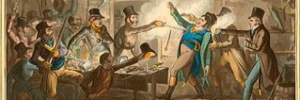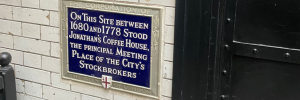During the heyday of Italian opera in 18th century London, a famous Italian soprano, Francesca Cuzzoni, who was used to getting her way, delayed arriving in London. Once she arrived, having been rushed to rehearsal, she complained that the opening aria was too quiet, but she had met her match with Handel, who threatened to throw her out of the window if she did not sing the aria the way he wanted it to be sung. Luckily, she complied and did so for the rest of her public performances, which went very well!

By Amadeus, you’ll get a clue about the pop star image of past classical composers. One also brings a sense of importance to the soloist and soprano. During the heyday of Italian opera in 18th-century London, a famous Italian soprano delayed her appearance before an adoring London audience to get married. Francesca Cuzzoni was a young Francesca Cuzzoni who had a career in Naples and Venice.

Once she finally arrived in 1722, she made the most profound impact on London operative life, particularly on the patience of the composer George Frederic Handel, who had himself become the centre of attention as the composer par excellence of Italian opera in London.
Handel arrived by boat from Hanover in 1710 and was immediately snapped up to produce the music for Rinaldo, which ran with great success at the Italian opera house of Her Majesty’s Theatre Haymarket. From then on until he largely produced Italian opera at this theatre and continued till his death to be the darling of the London musical set. The Italians had a way with melody and had worked out a way of seamlessly integrating words and music, enhancing the whole operatic experience for the audience.

The story goes that Cuzzoni, when she finally arrived, having been rushed to rehearsal, she complained that the opening aria was too quiet and she was used to getting her way, but she had met her match with Handel, who refused to give in to her whims. John Mainwaring wrote (translation)
I see you are a real devil, but I would have you know I am Beelzebub, the Chief Devil.’ With this, he took her up by the waist and, if she made any more words, swore that he would fling her out of the window!
Cuzzoni then obediently sang ‘Falsa Imagine’ from Ottone and did so the way Handel wanted it sung and did so in concerts for the next 30 years! The opera became an enormous success.
She was also famously a rival of the fellow Italian soprano Faustina Bordoni and Anastasia Robinson. There was also Senesino, a castrato male singer praised as ‘the greatest man alive.
The rivalry between Cuzzoni and Bordoni, which included even fighting on stage, was parodied in 1728 with the Beggars Opera with the parts Polly and Lucy, written by John Gay, one of the few English operas at the time which took off with the public.
These sopranos and male soloists could command huge salaries. Cuzzoni was known to make ‘excessive salary demands, and it was a career that perhaps was a rarity, which at the time appeared to sometimes provides women parity, at least in pay, with men.
Find out more about the fascinating musical world of the West End on my Composers of the West End walking tour.



